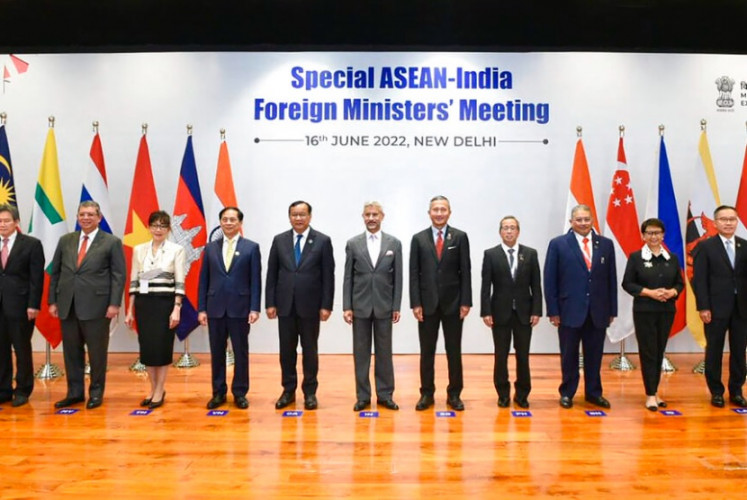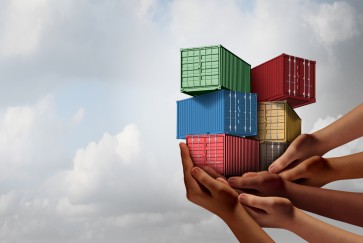The cost and benefit of Jokowi’s free trade policy
The House of Representatives’ failure to ratify the Regional Comprehensive Economic Partnership (RCEP) before it came into effect on Jan. 1 reflects the concern that Indonesian businesses, especially micro, small and medium enterprises (MSMEs), are still too weak to be exposed to free competition.
Change Size
 Illustration of free trade. (Shutterstock.com/Lightspring)
Illustration of free trade. (Shutterstock.com/Lightspring)
T
he Indonesian government’s stance on free trade has always been skeptical and hostile. It always views free trade as a threat to the domestic economy. Its trade policy has been largely shaped by protection and trade restrictions through tariff and non-tariff barriers.
The basic argument of this view is that competition – the core framework of free trade – will work against Indonesian companies who are viewed as generally weak, not yet ready to compete. Therefore, they still need the state’s protection to grow.
The concept of free trade is part of neoclassical economics, which is based on David Ricardo’s theory of comparative advantage that holds that free trade between two countries is always mutually beneficial because it allows the greatest total consumption.
Although it creates winners and losers, the broad consensus among economists is that free trade provides a net gain for society, increases economic growth, raises living standards, improves productive efficiency and offers consumers better choices. Free trade contributed enormously to the high world economic growth post-World War II and to the lifting of hundreds of millions of people (800 million from China) out of poverty.
Free trade has also been credited with lowering inflation around the world as competition has pushed down prices, hence increasing purchasing power and consumption.
However, discontent has been widespread over free trade as it displaced millions of workers, creating unprecedented inequality, inflicting suffering on farmers in developing countries who lost out from agricultural subsidies by governments in developed countries.
The House of Representatives’ failure to ratify the Regional Comprehensive Economic Partnership (RCEP) before it came into effect on Jan. 1 reflects the concern that Indonesian businesses, especially micro, small and medium enterprises (MSMEs), are still too weak to be exposed to free competition.

















